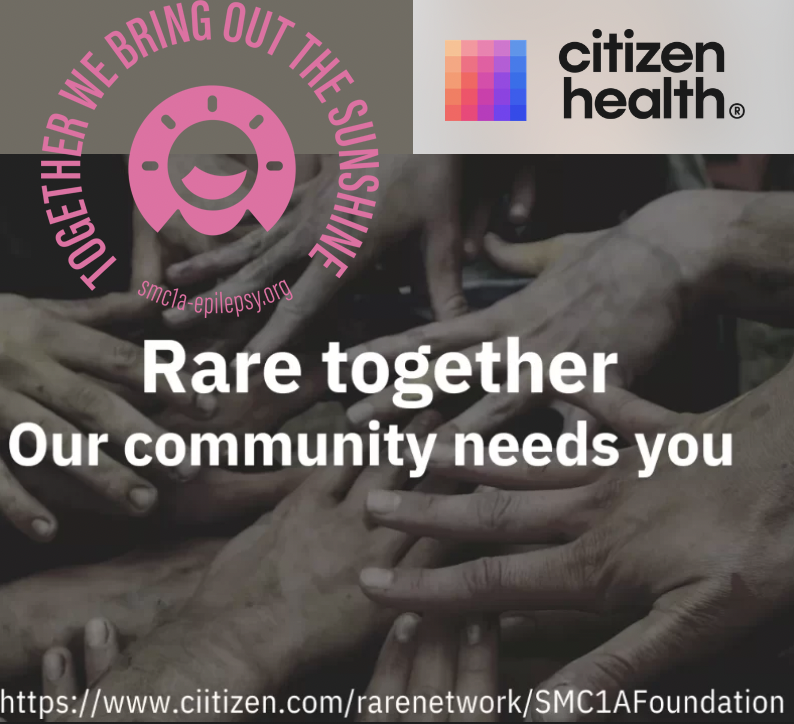Join SMC1A Patient Registries to advance research!
Data collection via SMC1A Patient Registries are absolutely essential in building the scientific foundation of any future clinical development for SMC1A DEE.
Fill Out SMC1A Natural History Baseline Survey
In this questionnaire, we are collecting disease baseline for SMC1A DEE. Takes 10-15min. Results and data available instantly.
This SMC1A Registry aims to establish a comprehensive disease baseline for SMC1A-related Developmental and Epileptic Encephalopathy (DEE). Our objective is to gain a deeper understanding of the disease and response to treatments. The data collected will help shape proof-of-concept studies and support potential treatment approvals. Additionally, this registry can contribute to clinical trial design, assist in identifying meaningful study endpoints, and guide patient care and research priorities.
CitizenHealth is a platform for building high-quality Comprehensive Natural History data. Registering takes about 10 minutes, and the Rare Patient Network team will collect all your loved one’s medical records. You will receive full access to the records through your personal portal and can share them with whomever you choose.
The data will be extracted from your existing medical records, de-identified for your privacy and protection, and with your consent, organized to share with researchers and pharmaceutical companies. (US families only)
CoRDS Registry
Coordination of Rare Diseases at Sanford (CoRDS) is a largest centralized International Patient Registry for all rare diseases. Join CoRDS to advance SMC1A Research. Takes 30-45min. Requires CoRDS registration.
Coordination of Rare Diseases at Sanford (CoRDS) is the largest centralized international patient registry for all rare diseases. This registry collects long-term disease data, ideally tracking individuals from childhood to adulthood, to better understand disease progression over time. The registration process takes approximately 30-45 minutes and requires creating a CoRDS account. Once registered, you will receive a login and password, allowing you to access and update the registry anytime.
The NIGMS Repository is a research biobank. This means that they collect blood and/or tissue samples from individuals with genetic diseases and make them into cell lines and DNA for scientists to use in biomedical research. Please read and discuss this information with your child’s care team to understand the process, the importance of biomaterial in research, and if donating can be suitable for your family.
A patient registries are essential to collect, store, and organize patient data to evaluate a specific disorder. Learn more about Patient Registries: https://www.ncbi.nlm.nih.gov/books/NBK208643/
How is your data collected, managed and stored? Data is collected and stored securely according to federal regulations and guidelines.
Your identifiable information can only be accessed by SMC1A Foundation personnel. All data shared with SMC1A community, researchers and external collaborators is de-identified data (data with personal information removed) and shared only for community or research needs.
SMC1A Foundation uses Question Pro and CoRDS platforms for patient data collection. Both these platforms are IRB approved.
You can remove your info at any time by emailing info@smc1a-epilepsy.org.


